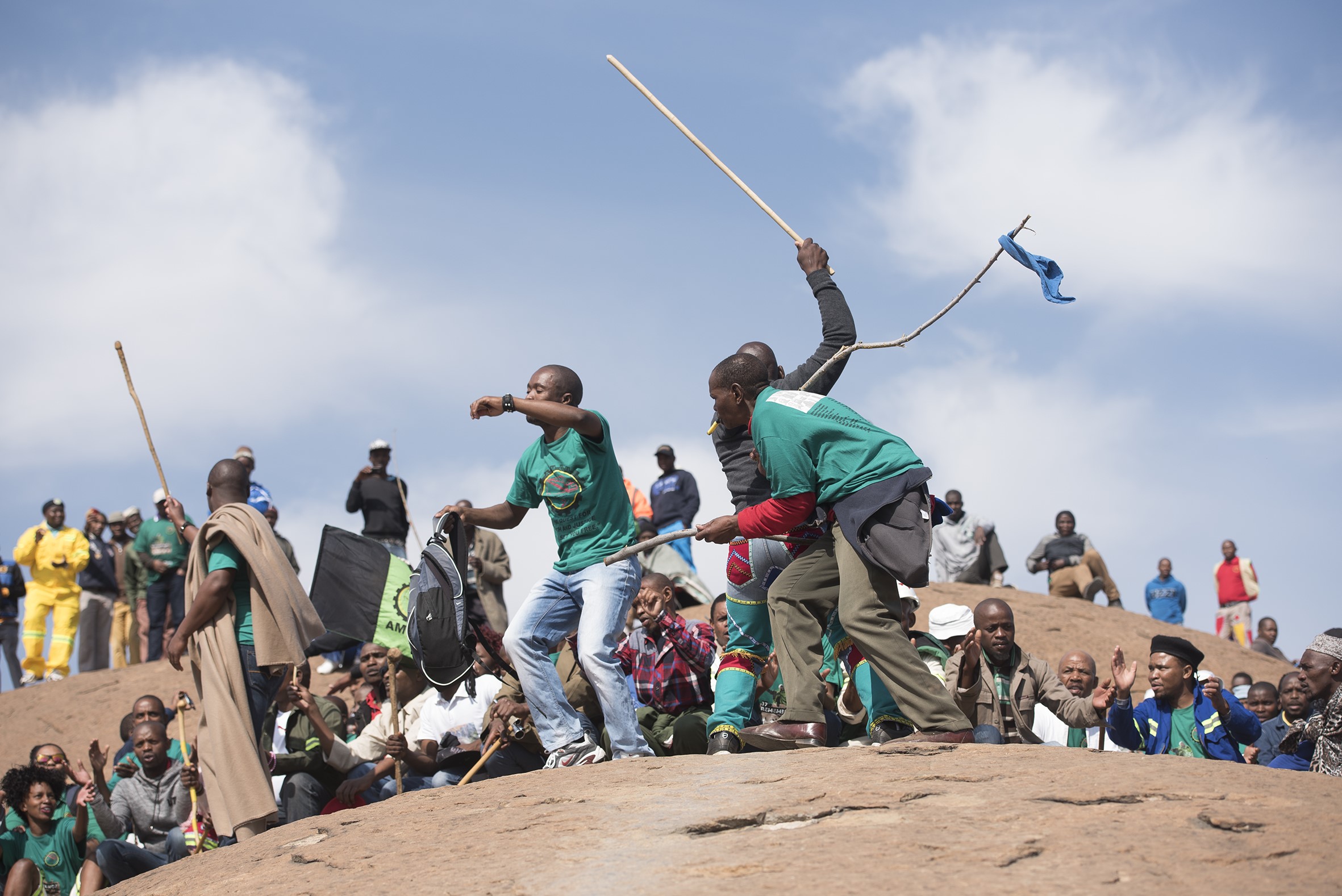
Seven years after Marikana, what’s changed in SA mining industry?

Seven years after the Marikana massacre, many of the conditions which triggered the miners’ strike and subsequent massacre still remain.
In August 2012, workers at the Lonmin Group mine in Marikana, South Africa went on strike in pursuit of better working conditions and a pay raise to 12,500 rand per month.
44 people were killed when police opened fire on strikers who had gathered on a rocky outcrop near the mine. 78 more were wounded. An additional 10 people, including police and Lonmin security guards, were killed in strike-related violence the week before.
The crackdown was the deadliest by police in the country since 1976. It drew comparisons to the notorious apartheid-era Sharpville killings and sparked widespread outrage across diverse sectors of civil society.
On Friday, authorities in North West province held a memorial for those killed in the violence. President Cyril Ramaphosa of the long-ruling African National Congress party added his voice to the chorus of mourners, tweeting that the event was “the darkest moment in the life of [South Africa’s] young democracy”.
But many of his critics remain unconvinced of the president’s sincerity. At the time of the massacre, Ramaphosa was a director and shareholder of the company in charge of the mine. Hours before the police opened fire, he exchanged emails with board members disparaging the striking workers as “dastardly criminals” and calling for “concomitant action” to be carried out against them.
In a statement released on Friday, the opposition Economic Freedom Fighters railed against the mine operator’s “naked greed and total disregard for black lives” while blasting the ANC for protecting the interests of the British-owned firm.
Democratic Alliance party leader Mmusi Mamaine labeled Ramaphosa a “central figure” in the massacre, joining calls by the EFF and labor groups to make August 16 a public holiday to commemorate the slain strikers.
The Democratic Alliance is also calling for the creation of a national Mining Task Team to oversee reforms.
The mining sector continues to play a central role in South Africa’s economy, accounting for nearly a fifth of its GDP. The country remains a crucial source of luxury minerals like diamonds, gold and platinum, as well as strategic resources like iron, uranium and coal.
Rights groups and mining trade unions say grievances like low pay, poor food and decrepit housing persist in 2019 even as the profits of foreign mining firms continue to rise.






